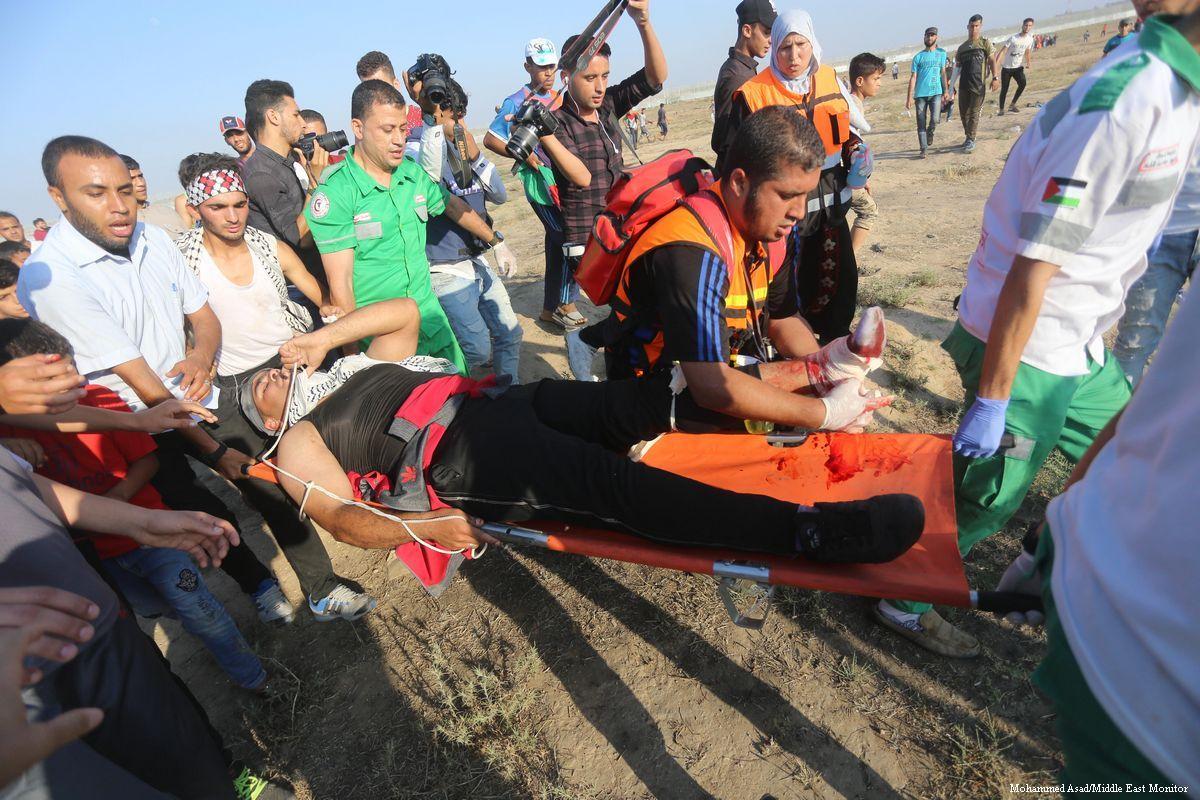Gaza Health Sector Struggling To Cope With Protest Injuries

The health sector in the occupied Gaza Strip is still struggling to cope with injuries sustained by protesters in Great March of Return demonstrations, according to a new update from UN OCHA
A recently published World Health Organisation (WHO) report noted that gunshot accounted for 210 of the fatalities between 30 March 2018 and 31 March 2019, and for 6,872 injuries, or 25 per cent of the total casualty caseload over the time frame analysed.
“Although any health system in the world would be overwhelmed if it had to manage a high influx of trauma casualties every week; the most pressing concern was the staggering number of gunshot wounds”, the WHO noted.
Regarding those shot by Israeli snipers, the WHO stated that “many still face excessive damage to the bone, irreversible damage to neurovascular structures and extensive soft tissue damage,” with osteomyelitis, a bone infection, a particular concern.
Gunshot wounds have resulted in between 1,209 and 1746 patients “who will need some form of specialized tertiary treatment with a wide range of multidisciplinary services; this cohort accounts for up to 30% of the total gunshot wounds to the limbs”.
For those Palestinian patients and their companions needing to access healthcare in West Bank and Israeli hospitals, “timely [Israeli-issued] patient permit approval has declined in recent years from more than 90 per cent patient permit applications in 2012 to 61 per cent in 2018”, said UN OCHA.
“If a patient is too old, young or sick to make the journey on their own, they may require a companion”, stated UN OCHA, adding that less than half – 48 percent – of patient companion permit applications were approved in 2018.
Meanwhile, the approval rate for patients injured during Great March of Return protests has been even lower. Between 30 March 2018 and 30 April 2019, Israeli authorities received 550 applications from Palestinians injured in the protests to exit Gaza via Erez crossing to access healthcare.
Of those applications, only 17 percent were approved, 26 percent were denied and 56 percent were delayed, reported UN OCHA.

WRITE YOUR COMMENT